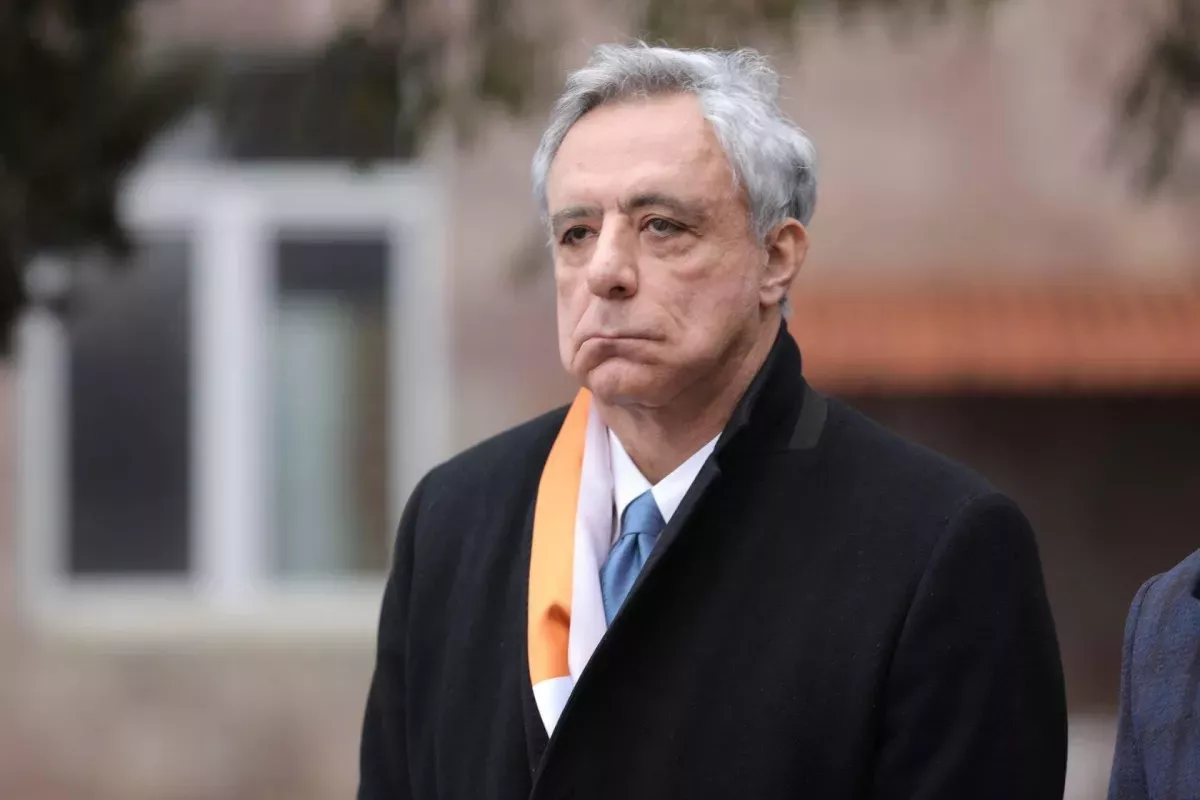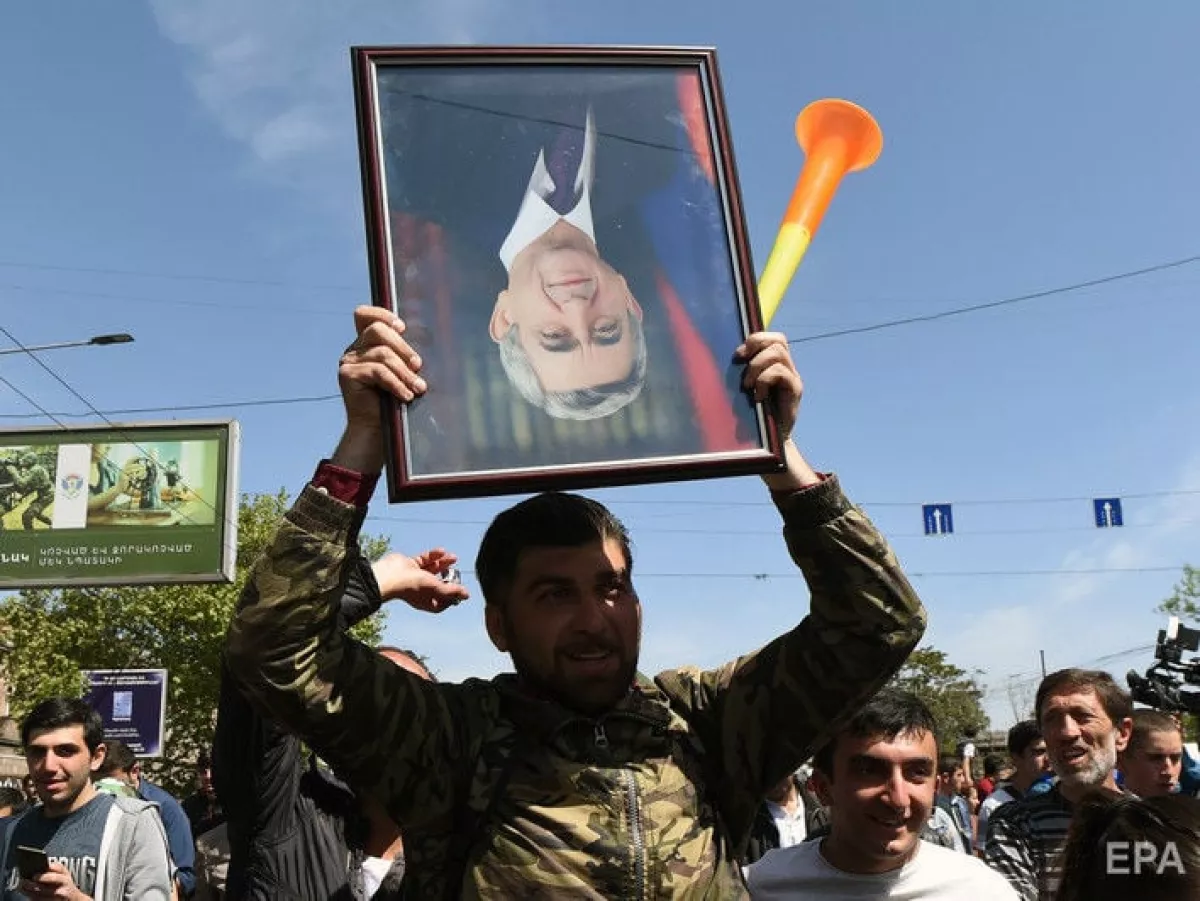A voice from the depths Vartan Oskanian lectures Armenians once again
Former Armenian Foreign Minister Vartan Oskanian has once again delivered a “message to the nation.” In an article published on one of the Armenian websites, he declared to his compatriots that Pashinyan must go—and attempted to explain why.
Before presenting readers with the most notable excerpts from the piece, it should be noted in advance that overall, the article is a demagogic diatribe filled with subjective judgments. Take, for example, this revelation: “One of the few things that unites most Armenians today is the belief that Prime Minister Nikol Pashinyan must go—the sooner, the better.”
Cheap manipulation? Obviously. One wonders where he got the idea that the majority of Armenians share this opinion. Could it be from reports by the Armenian office of Gallup International, which is on the payroll of the Karabakh clan?
Let’s read on: “What divides public opinion is the path to his departure: a parliamentary vote of no confidence, mass protests, early elections, or waiting until the scheduled vote in 2026.” As the saying goes, Captain Obvious. Except this obviousness doesn’t benefit the Karabakh clan that Oskanian represents (even though he himself is not from Karabakh).

Votes of no confidence in the Prime Minister are nowhere on the horizon — and how could they be, when the Civil Contract holds the parliamentary majority? A majority, by the way, secured in the snap elections of 2021. There aren’t any protests to speak of either. Last year’s campaign, led by the portly Bagrat who failed to endure the protest marathon, left the Karabakh clan facing a dilemma: whom to place at the head of the protest movement this time? Kocharyan is hated, Sargsyan is despised. Were Oskanian a bit younger, he might have volunteered himself, but age no longer permits him to dive headfirst into the rough waters of political struggle. Scribbling and mumbling at a monitor, however — that’s more his speed.
Snap elections don’t seem to be on the table either — there’s no government crisis, and Pashinyan himself sees no reason for such a move. Everything points to the scheduled elections in 2026. It’s hard to believe the Karabakh clique could groom a serious contender against Pashinyan in just a year.
It’s worth noting that Oskanian’s rhetoric in recent months and weeks has markedly shifted from what he used to say. Previously, he would offer fatherly advice to the current leadership, suggesting ways to “revive” the Karabakh case. Now, however, he’s turned to internal confrontation, calling on the people to wave this government goodbye — in other words, to get rid of it. Where he once foamed at the mouth trying to prove that “it can still be reclaimed,” now he merely hints at it: “Replacing him will not solve all problems. But it is the necessary first step toward restoring Armenia’s dignity, credibility, and strategic direction.”
And here comes a truly laughable passage: “In a region where strategic depth is essential, he has governed without experience, vision, or discipline.” Apparently, by “strategic depth,” Oskanian is referring to the absurd Karabakh clan policy of preserving the conflict at all costs by refusing any compromise and clinging to the so-called buffer zone.

We’ve said it before and we’ll say it again: Armenia’s defeat was inevitable — and that explains Sargsyan’s cowardly retreat in 2018 before a bearded man with a backpack and an armband. The entire "strategic depth" of the Karabakh clan boiled down to calculating the right moment to bow out before the army’s collapse and the death of the “miatsum” dream.
Yes, it wasn’t Kocharyan but Sargsyan who ultimately did it — but switching the players doesn’t change the outcome. Had Kocharyan been in Sargsyan’s place, he would have done exactly the same — perhaps even sooner. Today, on the faces of these two war criminals, beneath the grief for their shattered illusions, one can clearly detect a sense of relief that the defeat and capitulation didn’t occur on their watch.
The only forces with a legitimate chance to defeat Pashinyan in an election are the pro-European ones — and even then, only if two conditions are met: first, that Pashinyan falters on European integration; and second, that a sufficiently charismatic leader emerges in their camp.
The Karabakh faction has no such prospects. Which means their only remaining bets are on various forms of provocation.








